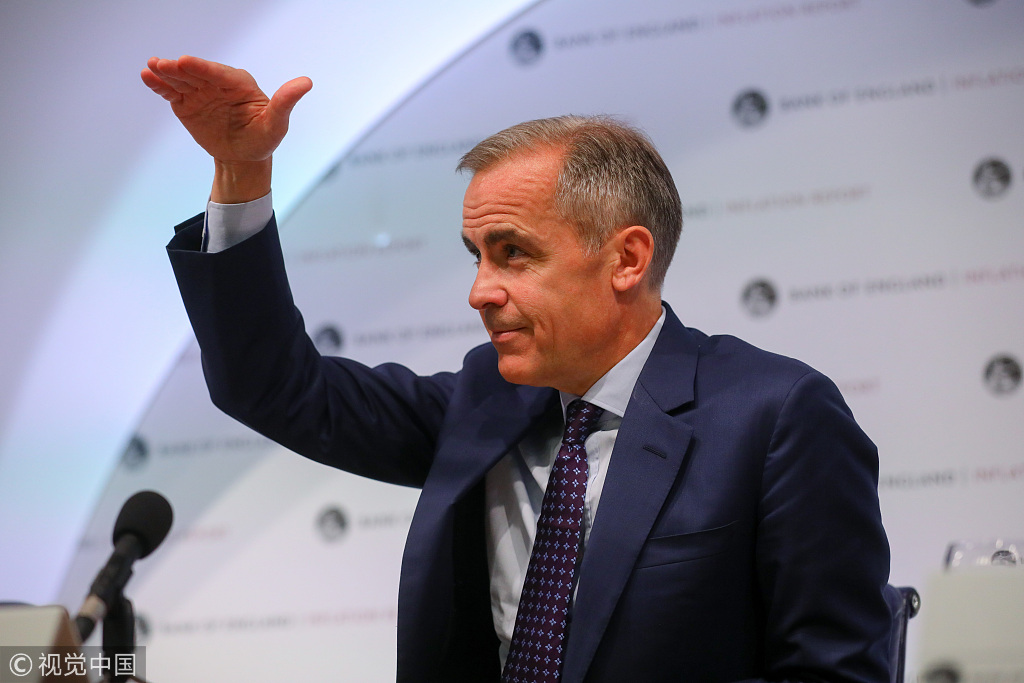UK rate-setters unanimously voted to raise the policy rate to 0.75 percent from 0.5 percent. While the move was widely expected by economists, the united front was not. And even some of those who had anticipated a rate rise, such as analysts at Bank of America Merrill Lynch, view a hike as a mistake given the weakness of economic growth and the risk that the UK's decision to leave the European Union could turn out badly.

Bank of England governor Mark Carney on August 2, 2018. (Photos: VCG)
Both those concerns are valid. UK GDP expanded by just 0.2 percent in the three months to May, with services making the only positive contribution, and the Bank of England expects growth of 1.4 percent this year. That's weaker than the pace of expansion the International Monetary Fund is forecasting this year for the US, Germany, France or Canada. And a chaotic Brexit could inflict considerable damage on the economy.
However, it takes less growth to generate price pressures these days than was the case before the financial crisis. The Bank of England estimates the potential rate of growth, or the speed limit of the economy, is around 1.5 percent. That has nearly halved since 1998-2007, according to the central bank's May Inflation Report, partly because of persistently weak productivity growth and a slower rate of increase in the population.
Such dismal performance means Bank of England governor Mark Carney cannot afford to wait to find out how Brexit will turn out.
As he pointed out at a news conference on Thursday, even if British Prime Minister Theresa May manages to secure a tentative agreement with other EU leaders in the coming months, it could take much longer for the government to secure a deal on issues such as trade, and for the true impact of Brexit on the economy to become clearer.
Rate-setters are probably well aware they may have to reverse course if there's a messy Brexit. But they had little choice but to raise borrowing costs before they found out, and were right to do so.
The author is Swaha Pattanaik, a Reuters Breakingviews columnist. The article was first published on Reuters Breakingviews.


